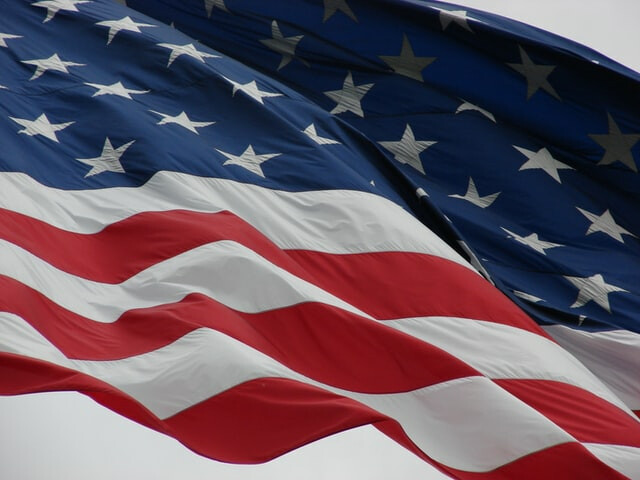
Custom Challenge Coins For National Navajo Code Talkers Day
Honoring Native Americans who helped the Allies win World War II
World War II changed the world. It redefined Europe, reshaped an entire continent, and changed warfare across the globe. Every year on August 14th, we honor the Native Americans who brought their unique abilities to the war effort. National Navajo Code Talkers Day celebrates their significance in World War II, U.S. code, and the language that made it possible.
The military used Native American languages before World War II. The Choctaw tribe’s language was used during World War I to relay coded messages. The languages were used for secret communication and to improve the speed of communications in front-line operations. The name "code talkers" primarily refers to Navajo speakers recruited during World War II by the U.S. military.
August 14th is a day to recognize the efforts of those brave soldiers, and what better way to do so than with a custom challenge coin? Challenge coins are meaningful keepsakes rooted in military tradition. These cherished keepsakes recognize troops' hard work, dedication, and notable achievements in all branches of the armed services. Let's honor National Navajo Code Talkers Day with something memorable.
History of the Code Talkers
Native American code talkers transmitted messages using codes developed from their native languages. The first known use of code talkers in the U.S. military was during World War I.
Cherokee soldiers were assigned to transmit messages while on the front lines. The Army also used Choctaw code talkers during World War I. The men trained to use their language in code to help forces in battle.
The Germans knew about the use of code talkers during World War I and sent a team to learn Native American languages before World War II. Thanks partly to the array of native languages and dialects, learning the Native American languages proved too challenging.
Fourteen Comanche code talkers took part in the D-Day invasion of Normandy. The soldiers created a vocabulary of 250 code terms. Each regiment was assigned two code talkers. After landing on Utah beach in 1944, the Comanche code talkers began transmitting messages. It wasn't until 1989, that the French government presented the Comanche code talkers the Chevalier of the National Order of Merit.
Navajo Code Talkers
World War I veteran Philip Johnston proposed the use of the Navajo language. Johnston, a civil engineer for the city of Los Angeles, was the son of missionaries to the Navajo and among a few non-Navajo who spoke the language. Shortly after the attack on Pearl Harbor, many Navajo men enlisted and became code talkers. Johnston thought the Navajo could provide an indecipherable code, thanks to their language's complex grammar.
The Navajo men demonstrated their capabilities in 1942 during a combat simulation. The demonstration proved the Navajo men could transmit messages much quicker than the machines of the era. The Marines' Amphibious Corps accepted the idea of using Navajo code talkers and recommended that the Marines recruit 200 Navajo.
The first 29 recruits attended boot camp in 1942. They created the Navajo code at Camp Pendleton. A codebook taught the words and concepts to recruits. The code talkers memorized the variations and practiced their use during intense and stressful training situations.
The code talkers were known for their skill, speed, and accuracy throughout the war. Six Navajo code talkers worked around the clock during the first two days at the Battle of Iwo Jima, playing a considerable role during the battle. Navajo code talkers continued through the Korean War and after, ending in 1968, in the Vietnam War. The Navajo code is the only spoken military code that was never deciphered.
Celebrating National Navajo Code Talkers Day
These brave individuals went above and beyond the call of duty. On August 14th, we will honor their service, loyalty, and devotion to our freedom. There are many ways to recognize the efforts of the Navajo Code Talkers.
Attend an online or public event, and learn more about code talkers' past and influence during World War II. Celebrate their contributions by visiting a museum such as the Navajo Code Talkers Museum in Tuba City, Arizona. Another exceptional way to commemorate the day is with a custom challenge coin. These small tokens include memorable details that honor and acknowledge the significance of these incredible individuals.
When designing a custom challenge coin, devise something that tells a story. Navajo Code Talkers Day has plenty of outstanding inspiration, including military history and tradition. Include details of importance, such as images, text, emblems, and logos.
Customize challenge coins to your liking and get creative. Add elements such as slogans and insignia, meaningful dates, locations, and names. With a unique story, Navajo Code Talkers Day coins can perfectly represent the importance of their work.
There are many options to make custom challenge coins stand out. While the design details are essential, adding color and texture can enhance the entire aesthetic of the coin. Contrasting colors make the images and text pop, and custom edge options can add elegance.
Navajo Code Talkers Day coins honor an important part of history and those who sacrificed their lives for our freedom. Present these custom challenge coins to friends and family of veterans or at special events commemorating the special day.
The Navajo code talkers played a crucial role in World War II and deserve to be honored for their achievements. August 14th, Navajo Code Talkers Day, is our chance to honor those veterans who had a remarkable influence during their service. Celebrate the day and those individuals with a gift that will be cherished for a lifetime.
Custom challenge coins are a special recognition for military members, active duty, and veterans. Let’s mark the day and honor the accomplishments of these soldiers with a tangible reminder that will be displayed and carried proudly. Create something outstanding that shares the code talkers' history and significance in our armed forces. Find out more about our military challenge coins here.